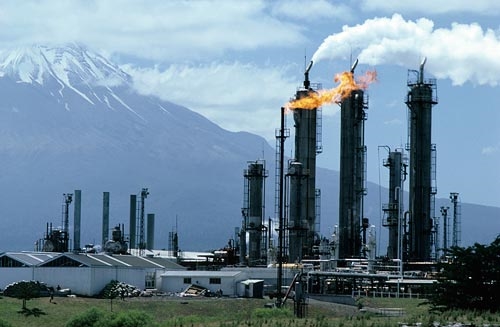With new advances and greater adoption of solar power, it’s not surprising that solar panels are becoming more and more efficient every year. But what if you want to get more power out of your panels now? Here’s everything you need to know about solar panel efficiency and how you can improve it.
How efficient are solar panels?
Solar panel efficiency refers to the panel’s ability to convert the sunlight that hits it into usable electricity, typically expressed as a percentage.
For example, a high efficiency solar panel might have a rating of 20 per cent. This means that 20 percent of the sun’s energy that hits it will be converted into electricity. If two different solar panels had the same amount of sunlight hitting them for the same amount of time, the panel with the higher efficiency rating would produce more electricity.
At the time of writing, solar panels generally have an efficiency rating of between 15 and 20 per cent, with 20 per cent being the norm for high-quality panels, such as our LONGi solar panels.
It’s important not to get the power rating and the efficiency rating of a solar panel confused. The power rating refers to how many watts a solar panel will generate. Our LONGi solar panels, for example, produce 370 watts each. They also have a solar efficiency of about 20 per cent. If they had a 100 per cent efficiency rating, they’d produce 1850 watts - which would be great, but there are good reasons why 100 per cent efficiency isn’t possible right now!
Why can’t solar panels have 100 per cent efficiency?
Solar panels can’t have perfect efficiency because they can’t absorb energy from the entire solar spectrum. In other words, there are certain wavelengths of light that the panels can’t process, so they are reflected. There’s also some loss during the energy conversion process within the cells themselves.
However, solar power technology is constantly evolving, and there have already been some incredible advances in the last few years. It’s very likely that solar panel efficiency will continue to increase over time.
Remember: while the panels may only convert 20 per cent of the sunlight, that’s still more than enough to supplement a significant portion of the average homeowner’s or business owner’s power use.
What affects solar panel efficiency?
The efficiency rating quoted for your panel is the efficiency of your panels during ideal conditions. However, conditions aren’t always ideal, and there are a few things to keep in mind when reviewing your panel’s efficiency rating in theory and in practice.
Sunlight
The efficiency of your panels will stay the same, but the actual amount of power they produce will be determined by how much actual sunlight is hitting the panels.
Here’s an example. In summer, you might have 10 hours of sunlight hitting your solar panels. Meanwhile, in winter, you might have only 6 hours. 20 per cent of the sunlight in either case will be converted to electricity, but you’ll generate much less power in winter compared to summer.
This doesn’t mean your efficiency is dropping - you’re still getting 20 per cent of the sunlight converted. It’s just that there’s less sunlight to actually convert.
This can be the result of:
- The time of day
- The time of year
- The current weather
- How much shade is on your panels
Less sunlight means less power, no matter how efficient your panels are.
Cleaning
Solar panels are mostly self-cleaning, with rain water often being enough to clear them of the worst of dirt and dust buildup. However, over time and in some conditions, dirty panels can block the sunlight from hitting the solar cells and - you guessed it - reduce the amount of power being produced.
Again, this doesn’t mean your panels are less efficient, it’s just that less sunlight is getting through. It amounts to the same thing though - less power generated!
Age
Solar panels are incredibly durable, with many of them having warranties of 25 years or even more. Over time, they can become damaged though, which will reduce how much power they can generate.
The most common damage is scratches, caused by debris or just rough cleaning. These scratches diffuse the sunlight unevenly, making it harder for the cells to absorb and convert them.
Other system components
Solar panels are just one part of a complete solar system. For maximum efficiency, the solar panels must be connected to an inverter (and potentially a battery system) that can handle the power being generated.
If the other system components are inappropriate for the panels, or have become damaged themselves, this can affect your solar systems overall efficiency (even if the solar panels’ efficiency is just fine).
How to improve solar efficiency
If you’re not generating as much solar power as you’d like, or you’ve noticed a sudden drop off, here’s a few things you can do to fix the issue - from most common to least common.
- Remember sunlight differences. Your solar panels won’t generate as much power when there’s less sunlight. If it’s a darker time of day or year, don’t stress - when summer rolls around, you’ll be back to full power generation.
- Check for unexpected shade. When you got your solar panels installed, the installers should have made sure there won’t be any shade blocking your panels. If it’s bright and sunny but you’re not getting as much power as before, best to check there isn’t new shade being thrown.
- Clean your panels. Dirt and dust can reduce your power generation, and things like bird droppings won’t always be washed away by the rain. It’s easy to clean your panels - check out our guide for a full breakdown.
- Check for damage. If you have older panels or you’ve experienced high winds or other weather events, you may have had some damage to your panels. Break out the ladder and check - it’s not likely, as panels are very durable, but it’s best to check.
- Check the other components. Sometimes the panels themselves are fine, but the inverters or the wiring have had issues. We recommend checking for obvious damage, and asking a professional to check if there isn’t anything immediately noticeable. You don’t want to mess around with electricity.
The best way to get improved efficiency from your panels is to start as you mean to go on. Work with a professional installer that uses a holistic solar system that’s designed to work together and matches your needs. It’s also a great idea to make sure you understand exactly how your behaviour can improve your solar efficiency too - such as matching your power consumption with power generation.
If none of these tricks work and you still want to get more power out of your system, don’t worry! Solar power systems are expandable, as long as you’ve got the roof space for them. If you’re looking to live free under the sun with improved solar generation capacity with some of the most efficient solar panels on the market, get in touch with the ZEN Energy team today.




